Honda HR-V vs Lexus LBX - Differences and prices compared
Compare performance (131 HP vs 136 HP), boot space and price (29700 £ vs 28300 £ ) at a glance. Find out which car is the better choice for you – Honda HR-V or Lexus LBX?
Costs and Efficiency:
Price and efficiency are often the first things buyers look at. Here it becomes clear which model has the long-term edge – whether at the pump, the plug, or in purchase price.
Lexus LBX has a hardly perceptible advantage in terms of price – it starts at 28300 £ , while the Honda HR-V costs 29700 £ . That’s a price difference of around 1465 £.
Fuel consumption also shows a difference: Lexus LBX manages with 4.50 L and is therefore evident more efficient than the Honda HR-V with 5.40 L. The difference is about 0.90 L per 100 km.
Engine and Performance:
Under the bonnet, it becomes clear which model is tuned for sportiness and which one takes the lead when you hit the accelerator.
When it comes to engine power, the Lexus LBX has a minimal edge – offering 136 HP compared to 131 HP. That’s roughly 5 HP more horsepower.
In acceleration from 0 to 100 km/h, the Lexus LBX is a bit quicker – completing the sprint in 9.20 s, while the Honda HR-V takes 10.60 s. That’s about 1.40 s faster.
There’s no difference in top speed – both reach 170 km/h.
There’s also a difference in torque: Honda HR-V pulls noticeable stronger with 253 Nm compared to 185 Nm. That’s about 68 Nm difference.
Space and Everyday Use:
Whether family car or daily driver – which one offers more room, flexibility and comfort?
Both vehicles offer seating for 5 people.
In curb weight, Lexus LBX is somewhat lighter – 1280 kg compared to 1452 kg. The difference is around 172 kg.
In terms of boot space, the Lexus LBX offers minimal more room – 332 L compared to 319 L. That’s a difference of about 13 L.
In maximum load capacity, the Honda HR-V performs distinct better – up to 1289 L, which is about 295 L more than the Lexus LBX.
When it comes to payload, Lexus LBX slightly takes the win – 475 kg compared to 418 kg. That’s a difference of about 57 kg.
Who comes out on top?
Overall, the Lexus LBX shows itself to be only a minor advantage and secures the title of DriveDuel Champion.
It convinces with the more balanced overall package and proves to be the more versatile choice for everyday use.
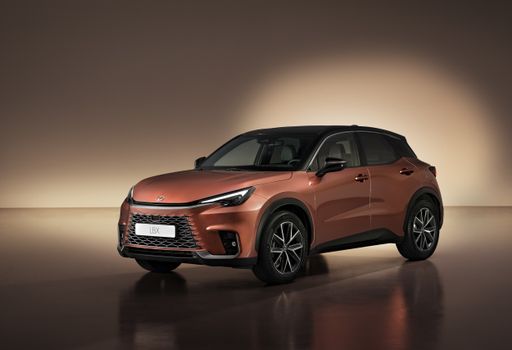
Lexus LBX
Costs and Consumption
View detailed analysis
Engine and Performance
View detailed analysis
Dimensions and Body
View detailed analysis
Honda HR-V
The Honda HR-V is the sensible compact crossover that blends roomy practicality with a composed, friendly drive, making it an easy pick for buyers who want everyday usability without fuss. It won’t thrill hardcore enthusiasts, but its clever packaging, comfortable cabin and low-key styling make life simpler — and that’s exactly the point.
details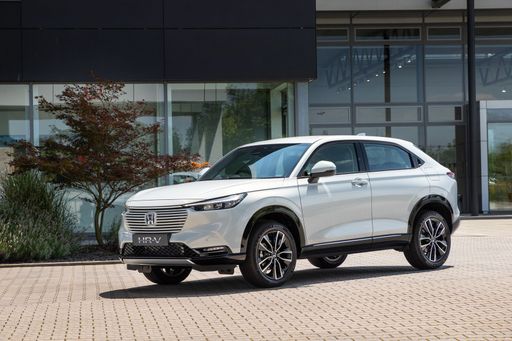
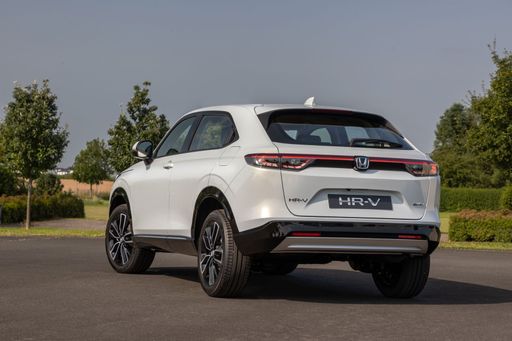

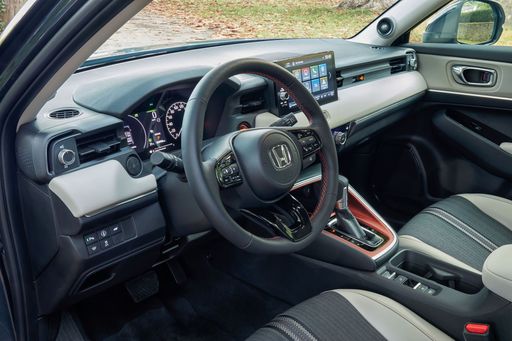
Lexus LBX
The Lexus LBX wraps premium touches and a surprisingly spacious cabin into a compact crossover that’s perfectly at home in town or heading out on longer drives. It wears the badge with quiet confidence, serving up a refined ride and clever packaging for buyers who want Lexus polish without shouting for attention.
details
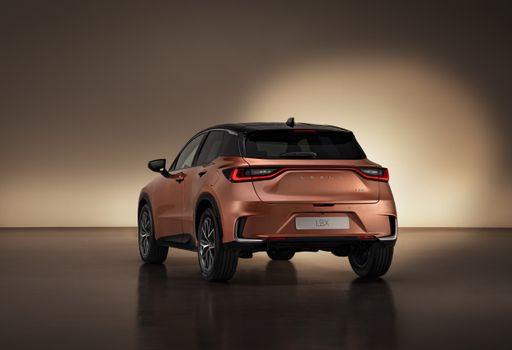
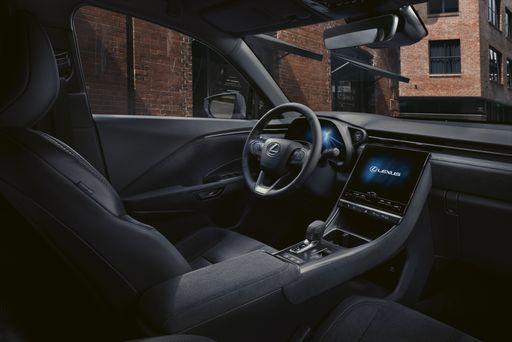
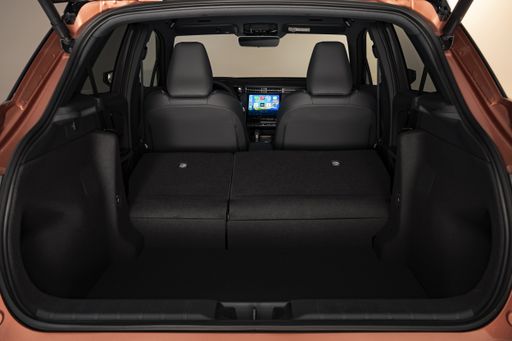
Costs and Consumption |
|
|---|---|
|
Price
29700 - 35400 £
|
Price
28300 - 40000 £
|
|
Consumption L/100km
5.40 L
|
Consumption L/100km
4.5 - 4.8 L
|
|
Consumption kWh/100km
-
|
Consumption kWh/100km
-
|
|
Electric Range
-
|
Electric Range
-
|
|
Battery Capacity
-
|
Battery Capacity
-
|
|
co2
122 g/km
|
co2
102 - 110 g/km
|
|
Fuel tank capacity
40 L
|
Fuel tank capacity
36 L
|
Dimensions and Body |
|
|---|---|
|
Body Type
SUV
|
Body Type
SUV
|
|
Seats
5
|
Seats
5
|
|
Doors
5
|
Doors
5
|
|
Curb weight
1452 kg
|
Curb weight
1280 - 1365 kg
|
|
Trunk capacity
319 L
|
Trunk capacity
255 - 332 L
|
|
Length
4355 mm
|
Length
4190 mm
|
|
Width
-
|
Width
1825 mm
|
|
Height
1582 mm
|
Height
1560 mm
|
|
Max trunk capacity
1289 L
|
Max trunk capacity
992 - 994 L
|
|
Payload
418 kg
|
Payload
455 - 475 kg
|
Engine and Performance |
|
|---|---|
|
Engine Type
Full Hybrid
|
Engine Type
Full Hybrid
|
|
Transmission
Automatic
|
Transmission
Automatic
|
|
Transmission Detail
CVT
|
Transmission Detail
CVT
|
|
Drive Type
Front-Wheel Drive
|
Drive Type
Front-Wheel Drive, All-Wheel Drive
|
|
Power HP
131 HP
|
Power HP
136 HP
|
|
Acceleration 0-100km/h
10.6 - 10.8 s
|
Acceleration 0-100km/h
9.2 - 9.6 s
|
|
Max Speed
170 km/h
|
Max Speed
170 km/h
|
|
Torque
253 Nm
|
Torque
185 Nm
|
|
Number of Cylinders
4
|
Number of Cylinders
3
|
|
Power kW
96 kW
|
Power kW
100 kW
|
|
Engine capacity
1498 cm3
|
Engine capacity
1490 cm3
|
General |
|
|---|---|
|
Model Year
2025
|
Model Year
2025
|
|
CO2 Efficiency Class
D
|
CO2 Efficiency Class
C
|
|
Brand
Honda
|
Brand
Lexus
|
What drive types are available for the Honda HR-V?
The Honda HR-V is available as Front-Wheel Drive.




